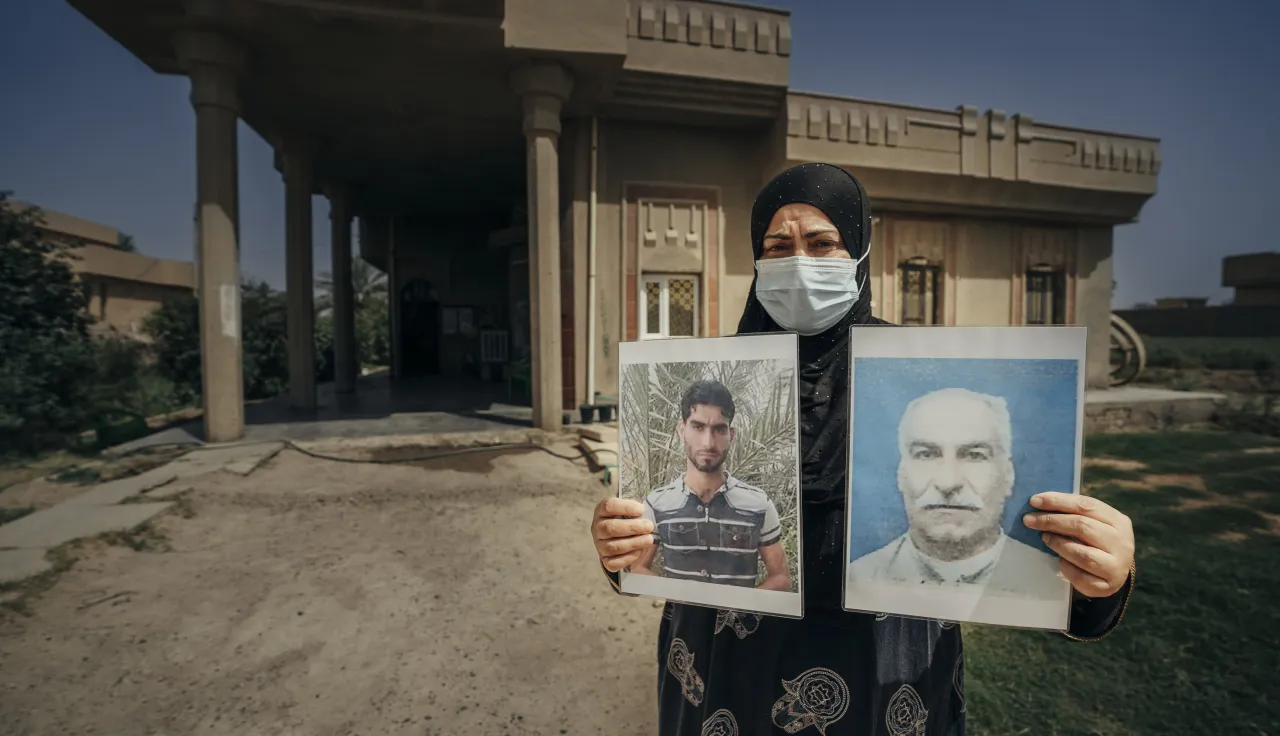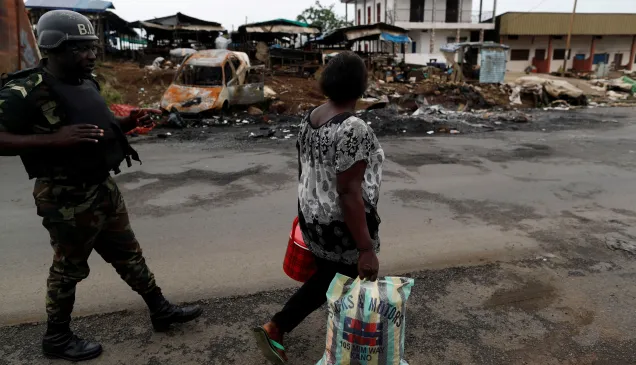Iraq is one of the countries with the highest number of missing persons in the world. The hundreds of thousands of missing people leave behind families grappling with uncertainty torn between hope and despair waiting for news, sometimes for decades.
The plight of people who have disappeared and the suffering of their families, all too often get ignored, it’s like a story without an ending. The trauma of ambiguous loss leaves deep and long-lasting wounds which could prevent families from moving forward with their lives and hamper reconciliation efforts” said Jean-Jerome Casabianca, the ICRC Head of Delegation in Iraq.
The families of the missing need answers; stopping the search is not an option and their needs aggravate as time passes by. Their new reality includes living with lack of answers and uncertainty, constantly looking for information about the fate and whereabouts of the missing person in addition to a whole range of new needs raising since the disappearance of a relative. The families of the missing also face economic hardship, suffer from psychological consequences, and struggle with legal matters.
"When my granddaughters ask me about their father, I show them his photos, they were little when he disappeared. The worst thing is when we eat, we remember them and start crying,” said Waheeda Ahmed, who lost three members of her family in 2016 including her husband and 25 years old son.
The ICRC in Iraq considers the issue of the missing a priority; through its activities and its support to the authorities in various areas it helps families with their search. The ICRC implements a multidisciplinary approach in addressing families’ needs which involves elements of psychological, psychosocial, economic, and administrative support. In 2021, the ICRC launched accompaniment programmes in Saqlawiyah in Anbar Governorate, Sinjar in Ninawa Governorate, and in Dohuk Area.
“This year, 769 tracing requests were submitted to the ICRC, adding to the enormous load of requests we receive every year. We know that these numbers are only the tip of the iceberg and do not convey the true extent of the issue. This year we have been able to support clarifying the whereabouts of 423 people so far and our efforts continue to help families get the closure they deserve,” said Prichilla Absi, Deputy Protection Coordinator in charge of the missing file at the ICRC.
The ICRC also supports the Iraqi authorities in strengthening the investigative and medico-legal system that is responsible for the search for the missing. The primary responsibility for preventing disappearances and clarifying the fate and whereabouts of missing persons lies with State authorities. States are required to adopt and apply measures to fulfil their international obligations and make every effort to prevent people from disappearing, search and identify missing persons, and address the needs of their families.
Notes for editors:
- Globally, ICRC is currently supporting more than 170,000 missing persons cases.
- ICRC has been working with relevant authorities and stakeholders in Iraq since 1991 to address the issue of missing persons.
- The ICRC supports authorities in the search for those who went missing during the Iraq-Iran and Iraq-Kuwait wars. In the first half of 2022, under the auspices of the ICRC, the mechanism put in place managed to recover 108 sets of human remains which were handed-over by Iraq to Iran and 22 sets of human remains handed-over by Iran to Iraq.
- The 30th of August marks the International Day of the Disappeared
For more information, please contact:
Hiba Adnan, Spokesperson, ICRC Baghdad: - Mobile: +964 790 191 6927
- Email: hiadnan@icrc.org
Avin Yassin, Spokesperson, ICRC Erbil: Mobile: +964 771 994 5066
- Email: avyassin@icrc.org
To learn more about the ICRC’s activities in Iraq:
Visit our website and follow us on Facebook, Instagram and Twitter




